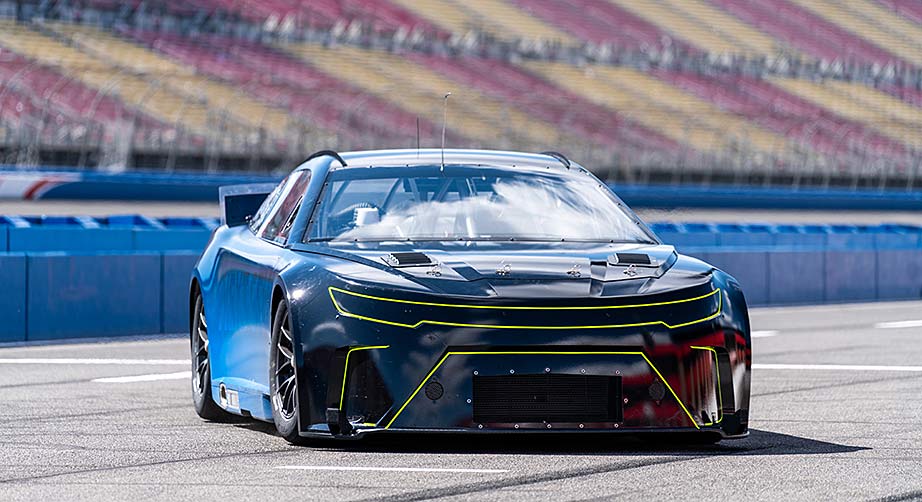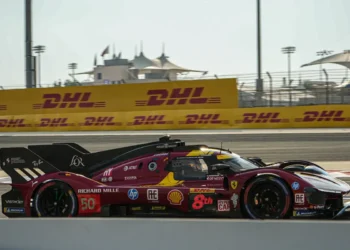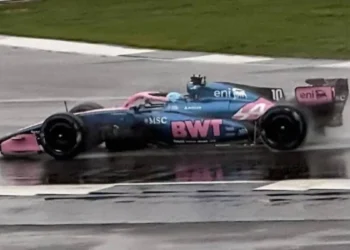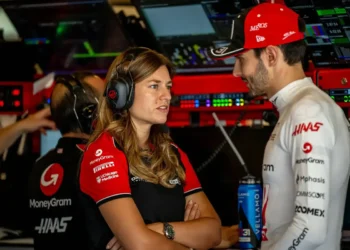The quintessential American experience is often painted with scenes of Friday night football under floodlights, sizzling Fourth of July barbecues, classic muscle cars roaring down Route 66, and the exhilarating roar of stock cars racing around the Daytona International Speedway. Unquestionably, NASCAR is a deeply ingrained part of America’s cultural fabric, providing a home-grown battleground that celebrates American automotive engineering prowess.
Historically, NASCAR’s race tracks have been dominated by iconic American automakers. Brands like Chevrolet, Ford, Chrysler, Dodge, and Pontiac have left an indelible mark on the sport. Apart from Toyota, all the players have been American companies, making NASCAR a testament to domestic automotive competition. However, as the sport continues to evolve, the need for fresh competition intensifies. The speculation around the potential entry of a fourth Original Equipment Manufacturer (OEM) has been growing, and it seems the spotlight is on an automotive giant that has already made significant strides in global motorsports – Honda.
Honda’s relationship with IndyCar, another major motorsport organization, appears to be on the verge of ending. According to recent remarks by NASCAR President, Steve Phelps, NASCAR could be the next stop for this Japanese automaker. Phelps has been vocal about the potential addition of a fourth, or even a fifth OEM to NASCAR, sparking speculation that Honda might become the latest entrant in the American stock car racing lineup.
Since 1994, Honda has been a dominant player in IndyCar, powering numerous teams and supplying nearly half of the 27-car grid. This includes 16 to 18 entries in the Indianapolis 500, the hallmark event of open-wheel racing. Despite this, the high cost of maintaining such a presence, with annual expenses running into eight figures, has raised significant financial concerns for the automaker.
Without a definitive strategy to curtail these costs, Honda’s departure from IndyCar looks increasingly probable. This has led to speculation that Honda might switch gears and make a ground-breaking entry into NASCAR – a move that would significantly transform the landscape of American motorsports.
Honda’s entry into NASCAR could inject a new competitive element into the Cup Series and open up additional funding and sponsorship opportunities for the teams. Phelps has underscored the benefits of a new OEM, suggesting that Honda’s entry would boost brand promotion and driver advertising. However, this potential move has reportedly left IndyCar owner, Roger Penske, concerned about the competitive balance in his organization.
Honda’s potential shift from IndyCar to NASCAR appears to be a strategic decision, considering the financial pressures the company is facing in the former. Shifting to NASCAR could not only provide a more sustainable financial model but also a higher return on investment through increased brand visibility and fan engagement. A study on The NASCAR Phenomenon: Auto Racing Sponsorships and Shareholder Wealth indicates that NASCAR sponsorships have historically led to substantial increases in shareholder wealth for sponsoring firms, often averaging over $300 million.
Moreover, Honda’s entry into NASCAR can also forge a stronger bond with American consumers, given NASCAR’s extensive and loyal fan base. While IndyCar appeals to a more niche audience, NASCAR’s widespread allure aligns seamlessly with Honda’s broader business objectives in the U.S. automobile market.
In addition to Honda, NASCAR President Steve Phelps has also indicated that discussions are underway with several other manufacturers about joining the Cup Series, reiterating the sport’s commitment to expanding its manufacturer lineup.
Considering the growing ties between NASCAR and Honda, and Honda’s reevaluation of its future in IndyCar, the stage seems set for the Japanese automaker to make a historic foray into stock car racing, marking a significant milestone in the evolution of American motorsports.










